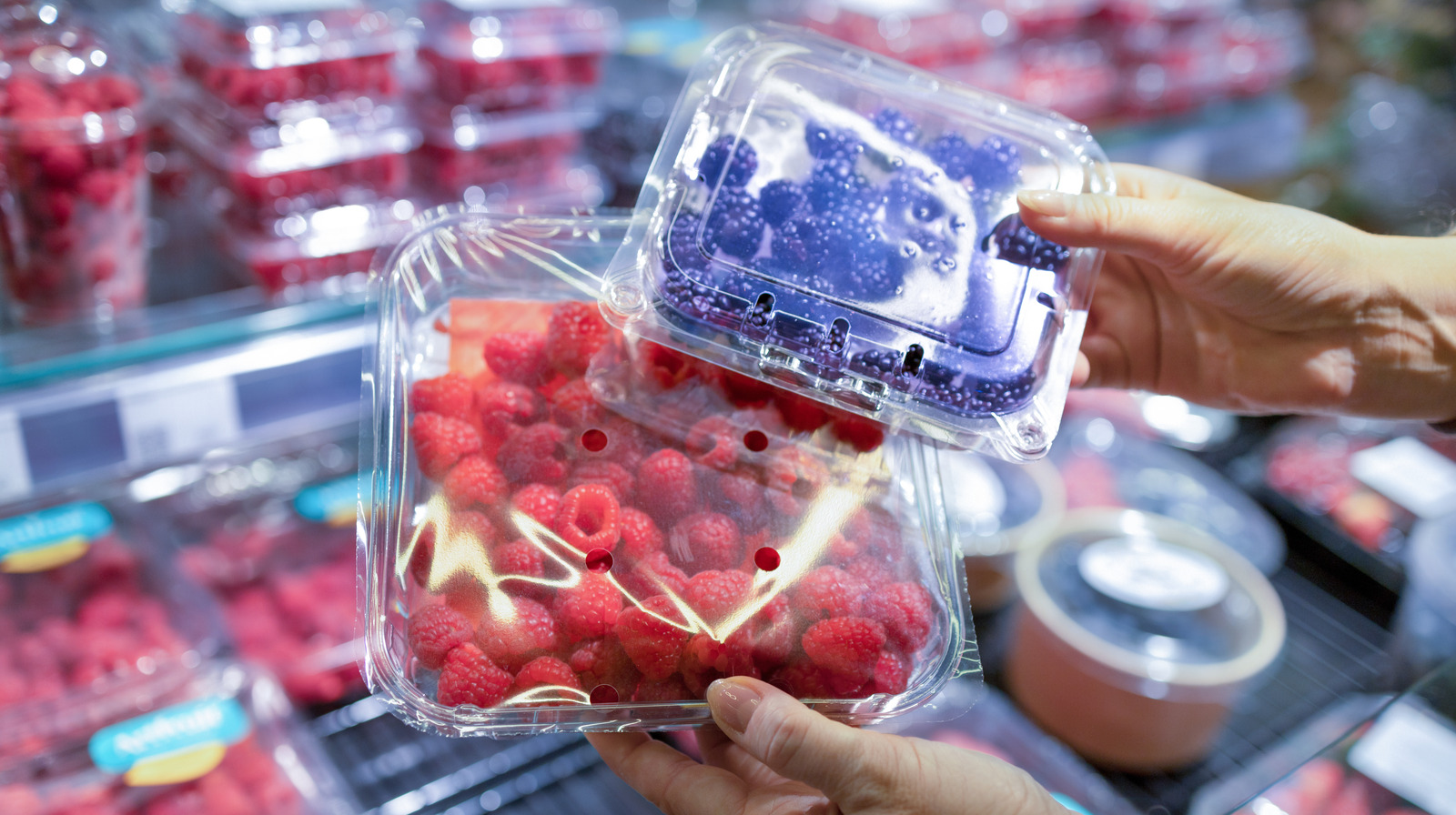
"While Moless admits that shaking a container properly can "reveal hidden damage," he also warns that "too much shaking can damage the fruit ... especially raspberries or blackberries." In the grand scheme of fruits, berries are incredibly delicate. Melons have their tough rinds to protect them, citruses have a fleshy outer layer to protect the fragile interior (here's why you shouldn't throw out those citrus peels), but berries have no such protection."
"When it comes to the explanation behind why people perform the "shake test," Moless says he "believe[s] they are trying to be berry detectives - making sure the fruit is not overripe." How could one possibly tell when berries are overripe simply by the sound they make? It's less to do with the berries tinkling or jingling, more to do with the fact that mushy, wet-sounding berries mean your package is approaching spoilage levels."
Shaking berry containers can sometimes reveal hidden damage but often risks bruising delicate fruits such as raspberries and blackberries. Berries lack protective rinds or thick peels, making them vulnerable to being beaten up by movement. Melons and citrus fruits possess tougher outer layers that better protect interiors. The shake test can indicate wet, degrading fruit by sound but cannot provide a complete assessment of ripeness. Visual inspection and smelling the fruit are necessary to detect ripeness and spoilage. Excessive shaking can therefore cause damage that shortens shelf life and reduces quality. Shoppers often shake to detect overripe, mushy fruit.
Read at Tasting Table
Unable to calculate read time
Collection
[
|
...
]